Dawn
of the Overlords
The
Val-Harra Saga Book 1
by
Kevin Potter
Genre:
Epic Fantasy
Dragons
are real.
A draconic apocalypse is poised to strike at
Humanity.
Just one wyrm stands in the way.
As
a young dragon living by the ideals of virtue and honor, Dauria
wanted nothing more than to live in peace and harmony with Humanity.
When that failed, she helped establish a pact that forced Dragonkind
into the shadows.
When she awakens after millennia of slumber,
she finds the Earth a very different place than she remembers. To
make matters worse, upon exiting her lair she finds herself stripped
of all her draconic power and left to freeze, in human form, on the
icy heights of her mountain home.
Someone doesn’t want her
to rejoin the rest of her kind. Someone sabotaged her from the moment
she awakened. Someone wants nothing more than to begin a full-scale
war between humans and dragons with the fate of the Earth in the
balance.
Somehow, Dauria has to find a way to overcome every
obstacle placed in front of her and make her way to the Dragon
Council. Who will prevent the coming war if not her?
But how
can she do that with no power and not even the strength of her dragon
form to aid her?
If
you love stories all about dragons as deeply flawed and conflicted as
any human, if you enjoy rapid, page-turning suspense on the backdrop
of dragon-centric contemporary fantasy, then download your copy
of Dawn of the Overlord today!
**Get
it FREE!!**
Power
of the Overlords
The
Val-Harra Saga Book 2
Dragons.
They
exist, and have risen from their slumber to take the Earth back from
Humankind.
In
the aftermath of the Great Dragon War, a horrifying new power could
destroy everything...
The
subjugation of man should have brought an end to hostilities. It
should have brought an age of peace to the Earth.
It
didn’t. The hostile suspicion between dragons is worse than
ever.
Since
her failure to prevent the war, Dauria has all-but-lost her faith in
the compassion of Dragonkind. But still she hopes. She prays that one
day sanity will return to her people.
After
centuries in Antarctica, Dauria and her budding family sacrifice the
peace and stability of isolation to re-enter the deadly world of the
New Dragon War to right a wrong she is partially responsible
for.
The
group travels to her ancestral home in Japan in the hope of stopping
her brother's dark machinations. But when the family is separated,
Dauria risks more than just her sanity in her quest to reunite her
family and stop her brother's evil plans.
Will
she find a way to thwart her brother and retrieve her family, or was
the quest a lost cause from the start?
If
you've been waiting for a series that puts dragons front and center,
then look no farther! Kevin Potter's Val-Harra Saga is exactly what
you've been looking for.
Age of the
Overlords
The
Val-Harra Saga Book 3
In
a future Earth where dragons reign supreme and have only each other
to fear, is there any chance left for peace?
A
conflicted dragon. A Prophecy. And an ancient wyrm with a dark
secret...
Gravv
is not the dragon he once was. No longer an innocent. No longer an
idealist. Now he lives for little more than revenge. But in the
aftermath of the disastrous showdown in Japan, he and his sire must
meet with potential allies in the west.
Their
arrival is far less than peaceful, however, and those allies have
plans and secrets of their own. All is not well in this conclave of
metallic dragons, and nothing is what it seems.
Will
Gravv find a way to rise above his own prejudices and overcome the
machinations of new enemies, or will The Age of Extinction make a
victim of him as well?
Revenge of the
Overlords
The
Val-Harra Saga Book 4
Thousands
of years in the future, dragons rule the Earth.
Though the war
is far from over, the battle has been won. But at what cost?
Maalyys
is mourning for the losses in the last battle, but there is so much
yet to do. Without the support of the overlords, the Great Council to
save and unite all Dragonkind in peace will remain an unattainable
dream...
Bal struggles to correct the tyranny his island home
has lived in for centuries, but a prophetic nightmare shows him that
he must take an active role in his sire's plans for the
future.
Someone is working behind the scenes to sabotage the
council, and Bal fears a wyrm has unlocked an unheard of power that
will destroy them all.
When an unlooked-for miracle returns a
fallen hero to their lives, everything changes. Hope, so long absent
from the Earth, tugs at the hearts of both dragons.
But will it be
enough? Will anything be enough to overcome the darkness that
dominates all Dragonkind since the discovery of Essence
Theft?
Though they sometimes work at cross purposes, Bal and
Maalyys must work together toward their common goal lest one whom
they both love will suffer all the more for it.
Revenge
of the Overlords is the long-awaited culmination of the Metal
and Stone sequence, the first arc of the Blood of the Dragons series
that brings full circle the story of what happens when dragons rule
the Earth. Longer, deeper, and more epic than any of its
predecessors, this book will keep you up turning pages long past your
bedtime.
Hello,
reader! (sorry to defy conventions, but I can't stand writing about
myself in the third person. It's just weird.)
I
spend a good portion of my time masquerading as dragons larger than
some cities, but when I'm not doing that I like to spend my time
picking people's brains.
No,
no, I don't mean learning from their experiences, I like the taste of
brain matter!
Okay,
okay, I'll try to be serious for a minute (I can't promise for more
than one minute though).
I've
been a storyteller for almost as long as I can remember. It started
when I was nine. In school, we had an assignment to write a one-page
short story. That night, I wrote a nine-page "masterpiece"
about a magical pair of shoes and their journeys throughout the
western United States before finding an owner who would properly care
for and appreciate them.
From
there, my storytelling grew into DMing D&D games (and other
roleplaying games).
Naturally,
the games eventually led me to start writing stories.
I’m
not a full-time author (yet), though I am hopeful. Professionally,
I’ve done everything from technical support to restaurant
management to building custom gaming PCs.
I
live in Cottonwood Height, UT, with my wife and two beautiful
daughters who I’m certain are much smarter than me.
PANTSERS, GARDENERS & DISCOVERY WRITERS
George RR Martin calls us Gardeners, likening the difference in writing methods to planting seeds to grow a garden or laying out detailed architectural blueprints before constructing a building. Stephen King just calls us writers, owing to his belief that it’s the only real way to write. The most common term I see in circulation is Pantsing, which is something of a derogatory term in my opinion. True, in some respects we do “Fly by the seat of our pants” when writing, but it’s not as cut and dry as all that. Which is part of why I prefer Brandon Sanderson’s term: Discovery Writing.
So, just what is discovery writing?
I’m glad you asked.
Traditionally, most authors create outlines of varying degrees of detail and write their story based on the scenes or events they detailed in the outline. Some stick rigidly to their outline, while others are more flexible. Some even modify the outline each time the story necessitates change.
On the opposing side, there are discovery writers. Discovery writers do not create outlines. Most of us start, as Stephen King does, by mashing a few ideas together and running with it. The method varies, but the common one is to start with a compelling character and put them in a bad situation. Some discovery writers start with a setting and build characters to inhabit it. Some start with a situation (which almost unanimously really sucks!) and then invent a character to stick into that sucky situation. And then we just watch what happens and chronicle the events.
Most discovery writers, myself included, report seeing the story like a movie playing out in their heads and write down what they see. Some claim to directly control the course of events, while others claim they have no control over their characters, but are impartial observers.
There is much debate in the writing community about these various concepts, but if writing (and interacting with writers) has taught me anything, it’s that no two writers have the same method or view things the same way.
Most discovery writers readily accept that there is another, possibly better, way to write (outlining). As such, I was quite surprised when I read Stephen King’s “On Writing,” and heard the way he talked about it. He is rather disparaging of the outlining method.
“Plot ruins stories,” he said at one point. In his elaboration, he made his view clear: intentionally focusing on plot or theme is the worst way to write a story, starting with a character in a situation and letting them run with it is the only proper way to write.
I can appreciate his position on that, but I can’t say I agree with it.
Similarly, I recently came across Nathan Major, a writer/blogger who claims discovery writing is more spontaneous, more exciting, shorter in length (a good thing, in his view), and at the same time a more challenging way to write. He believes discovery writing creates more believable and more proactive characters. He also makes the absurd claim that discovery writers are more likely to finish a book because of the lack of spending time pre-planning.
At the opposite end of the spectrum, there are a number of writers and editors like C. S. Lakin, who believe extensive plotting is the only way to create a cohesive story. Many completely disregard discovery writing as a legitimate method.
There is some truth to that, after a fashion.
Anyone who knows me should know I’m about as close to a pure discovery writer as anyone who’s ever completed a novel is likely to be. I do believe that for some people discovery writing is a perfectly valid method.
However, a lot of writers try to discovery write because they don’t know there’s another way (or think it’s too much extra work to spend all that time planning before they write). Some do so because they aren’t good at planning or because they enjoy the excitement of figuring the story out as they go. That last I can empathize with.
The fact is the percentage of writers who are what I call Natural Born Discovery Writers is actually quite low. Much lower than it would seem on first inspection. If you go to a writing conference or a creative writing classroom, on average around half of them will self-identify as discovery writers. But in my experience, the actual ratio is closer to 10%. Or perhaps much less. Most writers benefit greatly from planning and outlining before they begin writing.
Now, for those who like to see both sides of the fence, I once again like to refer back to Brandon Sanderson. Always a voice of reason on this subject (and many others), Sanderson is a confessed outliner. A very deep and detailed outliner. In his lectures, he says that on at least one project he wrote close to 50,000 words of OUTLINE. Yet, he is still very middle of the road on the matter. He suggests using discovery writing to connect with his characters goes a long way toward avoiding the usual problems associated with outline writing character details (typical complaints vary from being flat or two-dimensional to feeling contrived or unrealistic). He goes on to say that when done correctly, discovery writing can be great for putting together a compelling opening and exciting middle, but it’s his belief that discovery writers struggle with endings.
I would agree with that. Endings are definitely not my strong point, but I’m working on methods to improve that.
I also agree with his position that hybrid is a fantastic way to go. True, much of his discovery writing never makes it into a manuscript, but in discovery writing his characters, he develops a much stronger and more tangible feel for who they are and what they are trying to achieve. Coupled with his strong outlining method you have a recipe for success for any writer who can do both. Or even for a pure outliner. Discovery writing for character would still be a great method. When it’s done only to get to know the characters without any need for the writing to appear in the manuscript, it completely negates the usual pitfalls of discovery writing.
Probably the most damaging thing I see, to both sides of the discovery/outline debate, is the number of people who believe their own method is the best and/or only way to write. And I see it far too frequently.
The fact writers on both sides need to accept is that we are all really the same. Methods differ, but we’re all doing the same thing. We are two sides to the same coin, and neither method is inherently better or worse than the other. Execution is king.
Following is my list of discovery writing best practices and pitfalls to avoid.
Set aside time.
Although I do feel it’s pretty universal that it takes time to get really deep into your writing, I also think it’s a larger problem for discovery writers. We have to get into the right frame of mind to get into our characters’ heads to write them accurately. Outliners tend to have a lot of that pre-planned, so I think they have less of an issue with it.
Not no issue, just less.
My solution, of course, is to make sure you have a good amount of uninterrupted time allotted for writing. I suggest setting aside at least 4-6 hours at a time, if possible. That way you have plenty of time to get into the zone, and your ideas and creativity really start to flow, allowing you to write quickly.
For me, that usually takes me a good half-hour to an hour of slogging through false starts and stumbled attempts before I really get going. But once I’m there, I can spend hours turning out pages.
Free write.
I’m not necessarily saying you need to practice free association writing, although if that works for you then, by all means, do so! If you’re like me and it doesn’t, then just free write. No motivations, no goals, no plot, just write to get to know your story.
Write scenarios to get to know your characters’ personalities, histories, and family structure. Free write about what your villain/antagonist is doing while your protag is opposing her. Free write your setting, especially if you’re writing in a secondary world or an alternate history. Free write all those little details that aren’t likely to come up in the actual manuscript.
None of this needs to actually be in your story. It can be, if it fits the story and adds something to it, but there’s no rule that says every bit of background you know has to end up in the book. In fact, in almost all cases it’s much better if it doesn’t.
People don’t want to read a dissertation on your main character’s life story, or a full history of your fantasy world or sci-fi universe. They want to read the story. This is the key to avoiding one of the biggest pitfalls in writing, for both discovery writers and outliners alike.
We want to tell our readers every single thing about our world or our characters. After all, we find it so fascinating it keeps us up until all hours of the night, so why wouldn’t everyone else want to know about it too?
But the reality is most of them don’t. Sure, some people will. When I was younger, I was always one of those people. I wanted to know absolutely everything about the world and the characters.
But it’s uncommon.
If a bit of information doesn’t fit with the current story, if it doesn’t add anything (either context or information vital for understanding), then it’s probably best left out. The fact that you know it is going to come through in the writing, and that’s usually enough.
Look at the classic example of Lord of the Rings. There’s a huge sense of this big world with a ton of deep history and mythology, even though after the big opening dump about the Shire and the hobbits, Tolkien really doesn’t tell us all that much. Just imagine if when Aragorn mentions the story of Beren and Luthien to Frodo, he had spilled the entire story. Would you have put the book down? Or fallen asleep? I probably would have. Getting past all the background on the Shire was painful enough. And that would have been another thirty plus pages which would have added basically nothing to the story.
Similarly, what if Gandalf, when he tells Frodo about the Ring before leaving the Shire, had spilled the entire story of how Morgoth fell from grace, about the Silmarils, the wars around them, and then about Sauron’s rise and how he toppled Numenor. All just to lead into a long discussion of how Sauron learned the art of Ringmaking so he could forge the One Ring and proceeded to trick the races into accepting his “gifts.”
Pointless and boring?
I’d say so.
Yes, I read the Silmarillion. Truthfully, I rather enjoyed those stories. But in their proper time and place.
The point is there is just enough in Fellowship to show us that Tolkien already knew all that history before he sat down to write any of it.
So resist the urge to tell the reader every little thing you know about your world and your characters. They’ll thank you for it.
Immersion.
Let yourself be immersed in your story and your world. This is the fun part! You get to disappear from the real world and dive into the characters and world you’ve created! The more wholly you are able to join that world, the more real it will be for you, and the better experience you’re going to give your readers. Enjoy it.
Don’t gloss.
I know how tempting it is to gloss over the parts you don’t personally find all that interesting or exciting. I get it. But different people enjoy different things (like how, much to his amazement, most of Brandon Sanderson’s readers loved his first book, Elantris. It’s– by his own admission –the least exciting and least action packed book he’s written. Yet many fans claim it as their favorite Sanderson book). So don’t sell your readers short.
Go into detail.
It’s okay if you “tell” and gloss over it on your first draft, but when you revise you want every single page to be as interesting and engaging as you can make it.
Take your time.
I know this may seem counterproductive, but allow me to explain. When discovery writing it can be very easy to get caught up in the heat of the moment and blast your way through page after page after page of a story.
“Well,” I can hear you asking, “Isn’t that a good thing?”
The answer is it can be.
But it can also cause problems.
You have to take the time to think through your ideas before you write them.
And that’s hard. I know full well how hard it is.
I know it can feel like you’re spending too much time planning, but the fact is this is the number one way to prevent writing yourself into a corner.
I hear so many writers talk about how they had this great idea and just ran with it, and it was amazing. But then, it took an unexpected turn and they ended up in a corner they didn’t know how to write their way out of.
You know what usually happens next?
Of course you do.
They admit they’re stuck then scrap the whole thing and start over. Huge time suck.
So now I ask, what uses more time, writing for hours (or days) and tossing the result (whether that’s into the trash or into your ‘idea drawer’ for later), or slowing down to think about the repercussions of your ideas before you start writing them?
“But Kevin,” I can practically hear you snapping at me, “If I plan it out them I’m not discovery writing, I’m outlining.”
Well, that’s not true.
Not at all.
Here’s the thing: discovery writing doesn’t mean you don’t plan anything. It doesn’t mean every single word you write was conceived right there on the spot with no forethought.
All discovery writing really is, is taking a road trip without bringing the map with you. Does that mean you never even looked at the damn thing? Of course not!
You found the correct map, you got a general feel for the route, even noting a few landmarks and little pit stops you want to make along the way. Maybe you even imagined the sorts of chance meetings you might have or old friends you might bump into. You’ve allotted for the possibility of car accidents, construction, detours, and even the odd potty break.
But you’re taking the journey without having the map there in front of you, so maybe you’ll get a little sidetracked. Maybe you’ll go off in an unexpected direction for a while. Maybe you’ll meet someone you didn’t expect on the road. Hell, maybe you’ll run out of gas because you didn’t realize how far the next town would be.
Point is, you still have at least a general idea of where you want to go and more or less how you want to get there.
I swear, I can feel your hackles rising and I hear you saying, “What the hell does that mean?”
Put simply, common perception of discovery writing as being 100% flying by the seat of your pants is false.
Yes, claiming you wrote that entire 150,000-word manuscript (or 350,000-500,000 if you happen to be George RR Martin) off the top of your head with no forethought makes you look BRILLIANT! But that’s not how we write. We think about what’s going to come next before we actually get there. We think about our characters’ motivations and their histories. We plan little landmarks (events) to come up along the road. True, a lot of that will change dramatically by the time we get there, but there was still a plan (at least a loose one). And the plan does influence the direction the story goes.
So my suggestion is, don’t rush it. When you have that brilliant idea, take some time to think about how that idea is going to affect your story before you start writing it.
Finish the damn book!
This one seems like it would be self-evident, but so many people miss it. The number one thing you have to do if you ever want to make the transition from being a writer to being an author is you have to finish your book and get it published.
Lots of writers have all kinds of excuses why they haven’t finished their book. Either they’re too busy, or family life is smothering their creativity, or they have so much ADD creativity that they can’t focus on one story or they still need to edit for the 7,583rd time. Or they’re still perfecting their craft. Or they’re waiting until the next big writing convention to get an in with an editor. Or they want to self-publish, but can’t afford editing or a cover.
The list goes on.
If you’ve used one of these (the ADD creativity is probably the #1 discovery writer’s excuse), I’m going to tell you a secret. You’re making excuses. The best thing you can do is push all those excuses to the back of your mind and take that first step toward publication. Whether you want to publish traditionally or self-publish, take that step and get your work out there. Publishing is the only way to move forward.
Make an outline.
Now, I know what you’re thinking.
I used to think the same thing.
But the fact is, just because you’re discovery writing doesn’t mean you don’t need an outline.
Outlining is an invaluable editing and revision tool for a discovery writer.
Since you’ve finished that monumental task of writing your first draft, give yourself a good pat on the back. Now you’re going to create an outline based on your first draft (or, like Dan Wells does, your first draft can BE your outline) and use it to correct any issues in the manuscript.
Take a break!
After you’ve finished that first draft and made an outline from it, give yourself a much-deserved break from the project.
Not only do you need a little time off, but you need some time to distance yourself from the project before you begin editing. If you jump straight into editing, even if it’s a massive 300,000-word epic you spent 4 years writing, you’ll still be too close to the story and you’ll miss things that need to be fixed.
I suggest taking at least a month before you come back to your novel, three if you can afford the time. I like to write another novel before I go back to edit the first.
Modify your outline.
Before you edit, you need to modify your outline.
Take a hard look at the story elements and character arcs. Make changes where necessary to make sure your story works and your characters have significant growth before the climax.
Fix anything that doesn’t make sense and remove scenes that don’t add anything to your story.
Don’t get too attached.
Every writer gets attached to their characters and the specific story elements they love. It’s normal.
However, I’ve noticed that attachment seems to be somewhat worse for discovery writers. Always remember, just because you love it doesn’t mean it fits the story. In fact, sometimes it doesn’t fit the story because you love it so much!
After you’ve had your break, make sure you’re being as objective as possible about what works for your story and what doesn’t. As Stephen King says, you must kill your darlings.
Consistency.
Primarily regarding editing and revision, consistency in the narrative is paramount. All writers do it, but discovery writers tend to be more susceptible to calling a character by multiple names, shifting spellings, and characters behaving inconsistently.
As with most things, if you notice this in your first draft, just make a note of it and write on. If it’s something major, assume the change has already happened and write forward from there.
In revision, though, these need to be corrected. Most are easy to spot once you’ve had time away from the manuscript, but for inconsistent character behavior. It’s one of those issues that is (at least in my experience) very difficult to spot in your own writing. My best advice is to specifically watch for it. Analyze every action your character takes. If your character is behaving inconsistently but there’s an in-story explanation, great! No problem. But if there’s not, you’d better correct it. Either develop an in-story reason or change the behavior.
When all is said and done, above anything else, of course, do what works for you and ignore the rest. As Brandon Sanderson says, there are as many writing methods as there are writers.
However, I do highly recommend giving every idea a try at least once. You never know what’s going to work until you try it. Try my advice, try Sanderson’s advice, try King’s advice, and try the advice of all those writers and editors who say discovery writing doesn’t work. You have to try everything to find your own method. And if just one thing here helps you to become a better writer, then I’m happy.
Just to recap, here’s a condensed version of that list of best practices:
Set aside time.
Free write.
Immersion.
Don’t gloss.
Take your time.
Finish the damn book!
Make an outline.
Take a break!
Modify your outline.
Don’t get too attached.
Consistency.
$25
Amazon Gift Card (WW),
Signed Paperback of Shadow of the Overlord (US
only)
– 1 winner each
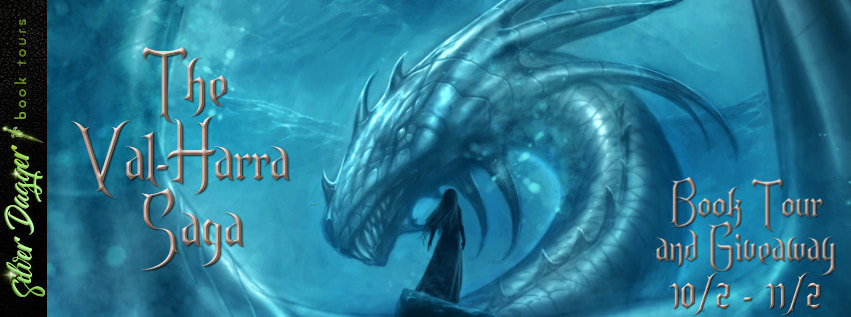
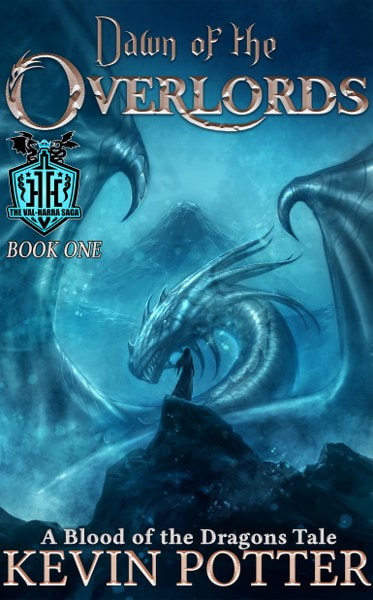

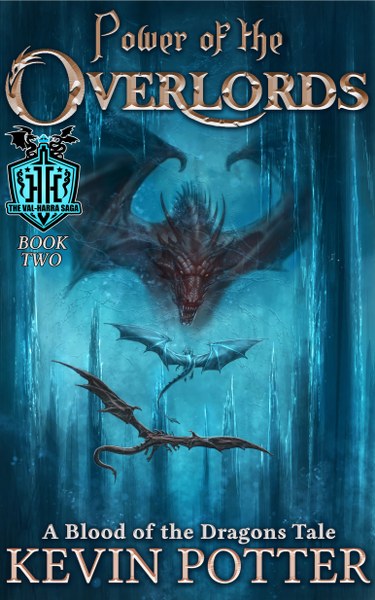
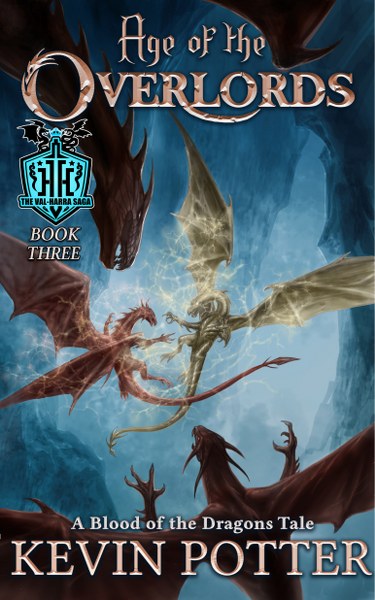
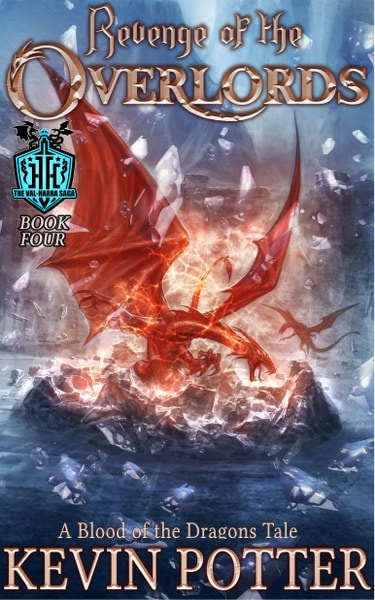





Hey, thanks for featuring me on your blog!
ReplyDeleteI really appreciate it!
Now, if any readers are interested, I'm always happy to talk writing craft, dragons, magic, or just about anything else even vaguely fantasy-related :-)